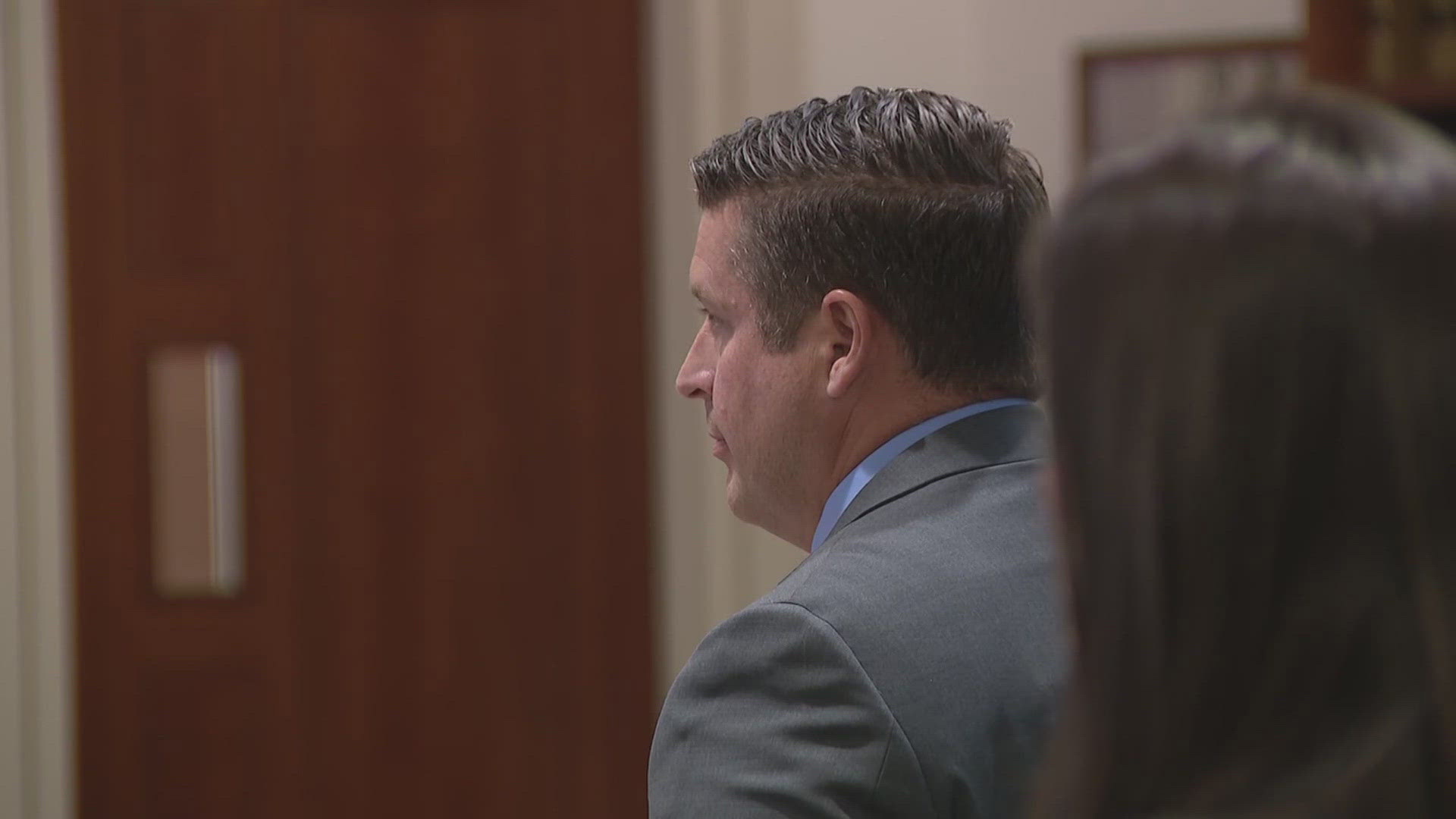KENT, Wash. — Jury deliberations in the murder trial of Auburn police officer Jeffrey Nelson were paused for hours on Wednesday while the court parsed through several issues that came to light that morning.
Nelson faces charges of second-degree murder and first-degree assault resulting from the death of Jesse Sarey, whom he shot twice while attempting to make an arrest in May of 2019.
There is no question as to whether it was Nelson who killed Sarey. The question is whether or not it was justified.
Jury deliberations have been proceeding in fits and starts so far. Earlier this week the jury returned a verdict that they could not come to a conclusion. Judge Nicole Gaines Phelps sent the jury back to deliberations, citing that they had incorrectly filled out one of the verdict forms and had only been in deliberations for a day and a half while having more than 110 evidentiary exhibits and weeks of testimony to consider.
Wednesday brought multiple new complications.
A prosecutor at the Maleng Regional Justice Center who is not affiliated with the Nelson case overheard two jurors speaking to each other about the trial in a public area. Jurors have been instructed since the beginning of the case that they are not to talk about the trial with anyone outside of the deliberation room or outside of the presence of their fellow jurors. Discussing the trial outside of the deliberation room or outside the presence of fellow jurors could get the two dismissed.
Even if one juror is missing, the remaining 11 may not discuss the case without them.
"Jurors should not be privately conferencing - even casually - about the facts of the case," Former Pierce County Prosecutor Mark Lindquist told KING 5.
The prosecutor who overheard the jurors speaking recalled hearing one juror say to another, "We're not here to be best friends, the 12 of us are here because one person was killed and another person is on trial." The prosecutor walked back by the pair a short time later and heard that same juror discussing photos from the scene of the killing that they had been looking at during deliberations. The juror referred to someone in the photo as an "attractive, clean-cut man." There was no clarity as to whether that was in reference to Nelson or an unaffiliated bystander who was pictured.
The discussion quickly became derailed by the revelation that jurors actually had been able to come to a verdict in one of the charges, which Judge Phelps had not disclosed to either prosecutors or the defense on advice from other senior trial judges that she consulted with.
The defense expressed concern that the judge returning the jury to deliberations when they had reached a conclusion which they were prepared to deliver in court signaled to jurors that they were meant to re-deliberate on that decision.
The judge and prosecution disagreed, saying they felt it was communicated that the jury should only keep deliberating on the charge they had not decided on.
The defense took issue with the judge's specific phrasing when sending the jury back to deliberate, as she had not polled the presiding juror to ask him if he felt they could come to a unanimous decision on the undecided charge if given more time. The defense pushed the court to accept the initial verdict that the jury returned, including the charge they could not come to a conclusion on.
Prosecutor Patty Eakes disagreed and argued it was appropriate for the jury to continue deliberating, saying that it is within a judge's discretion to not accept an incomplete verdict, especially after such a short period of time.
To address defense concerns, the judge decided to bring out the presiding juror and poll him to see if he felt the jury could come to a conclusion on the undecided charge. The presiding juror said yes.
Deliberations are now expected to continue as normal until the jury comes to a verdict.

